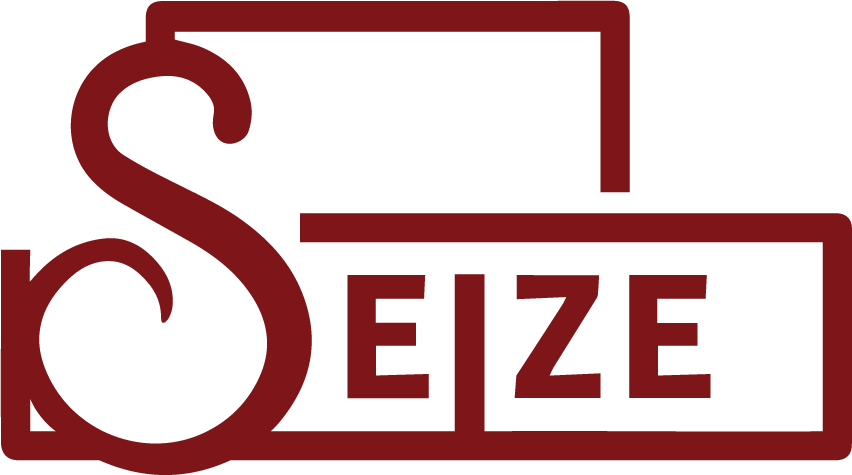2014
Networks formed on campus during the 2012 Quebec student strikes turn to incubating co-ops through the Concordia Student Union, part of an effort to build a democratic economy.

The Concordia Food Coalition is established, marking an initial step toward creating a solidarity economy incubator at Concordia.

Organizers like Benjamin Prunty, Chloe Williams, Jessica Cabana, and Gabriel Valesco mobilize student involvement through the Concordia Transitions conference, helping launch cooperative food projects—notably the Hive Cafe Solidarity Co-operative.
The same coalition mobilizes support for international solidarity, fossil-fuel divestment, and free public education.
2015
Early successes inspire the formation of a social economy incubator working group. In 2015 CSU by-elections, students vote 84% in favour of the development of an on-campus solidarity economy incubator.
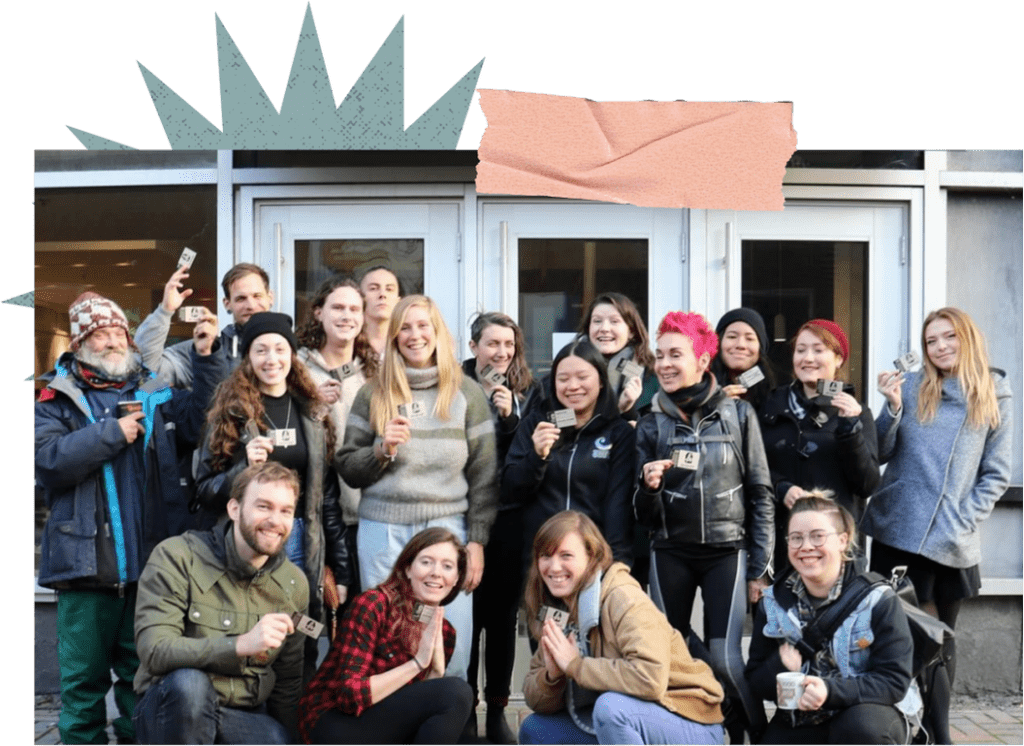
Students approve $1.85 million for student cooperative housing, leading to the establishment of Woodnote. A bankrupt campus bar, Reggies, is reborn as a solidarity co-op.
2016
SEIZE co-founders Benjamin Prunty, Jessica Cabana, and Dru Oja Jay organize Transform/er Montreal. The successful international conference brings organizers from around the world to Concordia, inspiring local transformative efforts.
While financing new cooperatives, the Concordia Student Union divests the rest of its holdings—some $10 million—from fossil fuels.
With a fresh referendum mandate to develop a social-solidarity economy incubator, the Concordia organizers draft bylaws, and begin the process of establishing SEIZE.

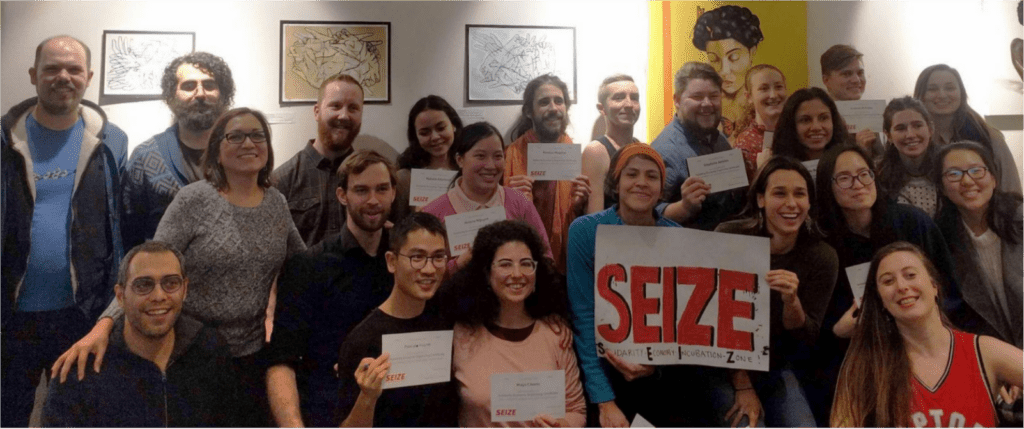
2017
Enthused by the reception of the first conference, Transform/er Montreal organizers decide to do it again—and bigger—in 2017.
The incubator working group secures a grant from the Dean of Students Office at Concordia, to conduct research on solidarity economy incubators across Canada.
2018
All of this organizing leads us to take on the first version of our name — Solidarity Economy Incubation Zone (for Entrepreneurs), or SEIZE.
The Fundamentals of the Solidarity Economy curriculum series, funded by the Sustainability Action Fund, attracts aspiring student activists, organizers, and entrepreneurs, highlighting a desire for grassroots economic transformation.
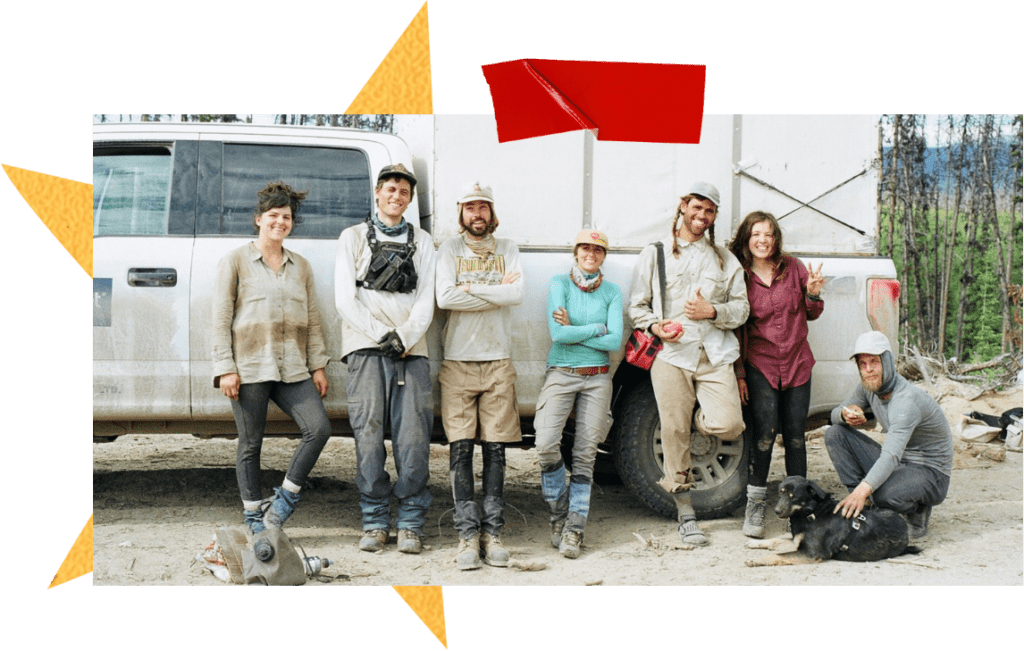
SEIZE supports the transformation of Tree Amigos Contracting Inc, a tree-planting company, into the worker-owned New Roots Worker Co-operative—the sole tree-planting worker co-op in British Columbia.
2019
During the second round of the curriculum, SEIZE encounters unexpected opposition. Despite unanimous approval from internal committees, SEIZE’s fee-levy application is blocked by warring political factions within the CSU.
Amidst the turmoil, a SEIZE-backed fossil fuel divestment campaign, successfully pushes Concordia to divest from fossil fuels. The university goes a step further, investing its $243 million Foundation in socially responsible investments.
2020
SEIZE shifts a pre-pandemic effort to organize a followup conference to Transform/er Montreal into an online speaker series, “This is How we Transform the Economy,” Speakers include Cheyenna Weber, Esteban Kelly, and George Lakey.


In 2020, the Woodnote officially opens, providing housing to 140 undergraduate students. The Hive adapts to pandemic conditions by delivering free vegan lunches to Woodnote residents through a meals on wheels program—an example of the responsive mutual aid enabled by solidarity economy structures.
2021
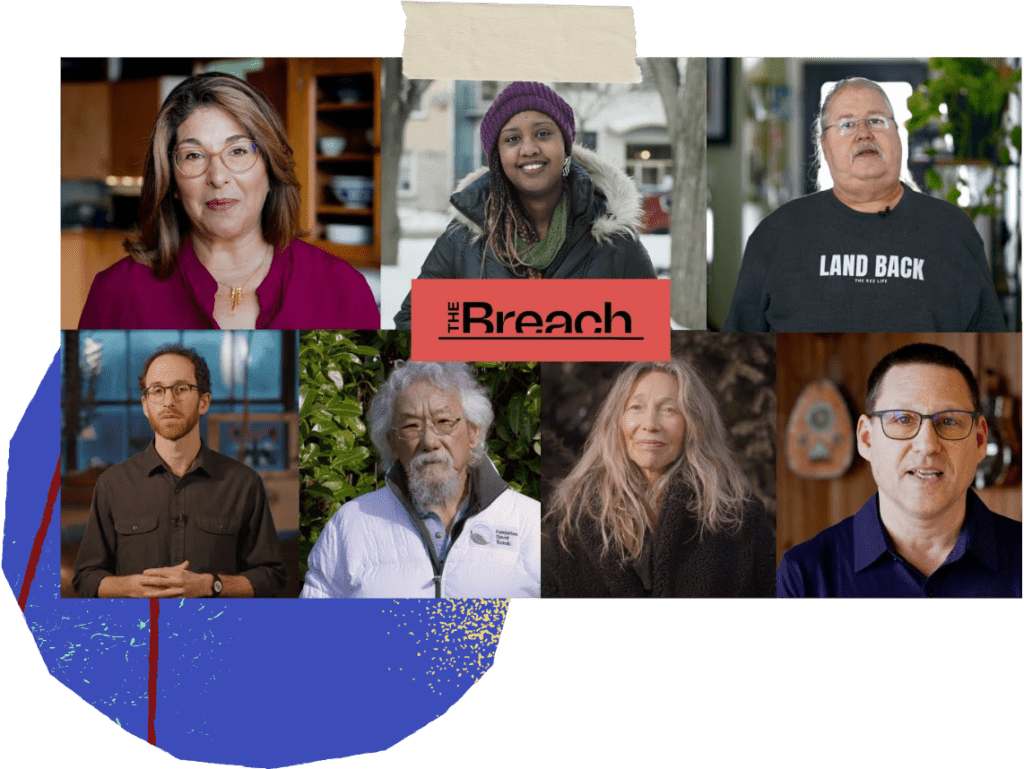
SEIZE, CUTV and former members of the Media Co-op support the launch of The Breach, an independent national media outlet focused on transformative journalism.
The Breach quickly gained popularity, raising $165,000 in two months through crowdfunding, making regular national headlines with its investigative reports.
SEIZE's second try at gaining a fee levy is approved by the CSU. In a record-breaking turnout, Concordia students overwhelmingly support funding SEIZE.
2022
SEIZE launches services for the Concordia's ecosystem: the SEMI program for mentorship and internships, project seed funding, board trainings, and co-operative training throughout the year.
The Fundamentals of the Solidarity Economy curriculum also relaunches, attracting a growing number of Concordia activists. Incubation efforts intensify as SEIZE teams up with CFC/Concordia community on the New Food Enterprise and partners with neighbourhood and university groups to establish a cooperative bistro in Milton Parc.
Addressing recurring issues of high turn turnover, expertise, and redundancy in allied organizations, SEIZE incubates Populus Financial Services Co-operative, supporting Concordia’s cooperative and fee-levy community.

